
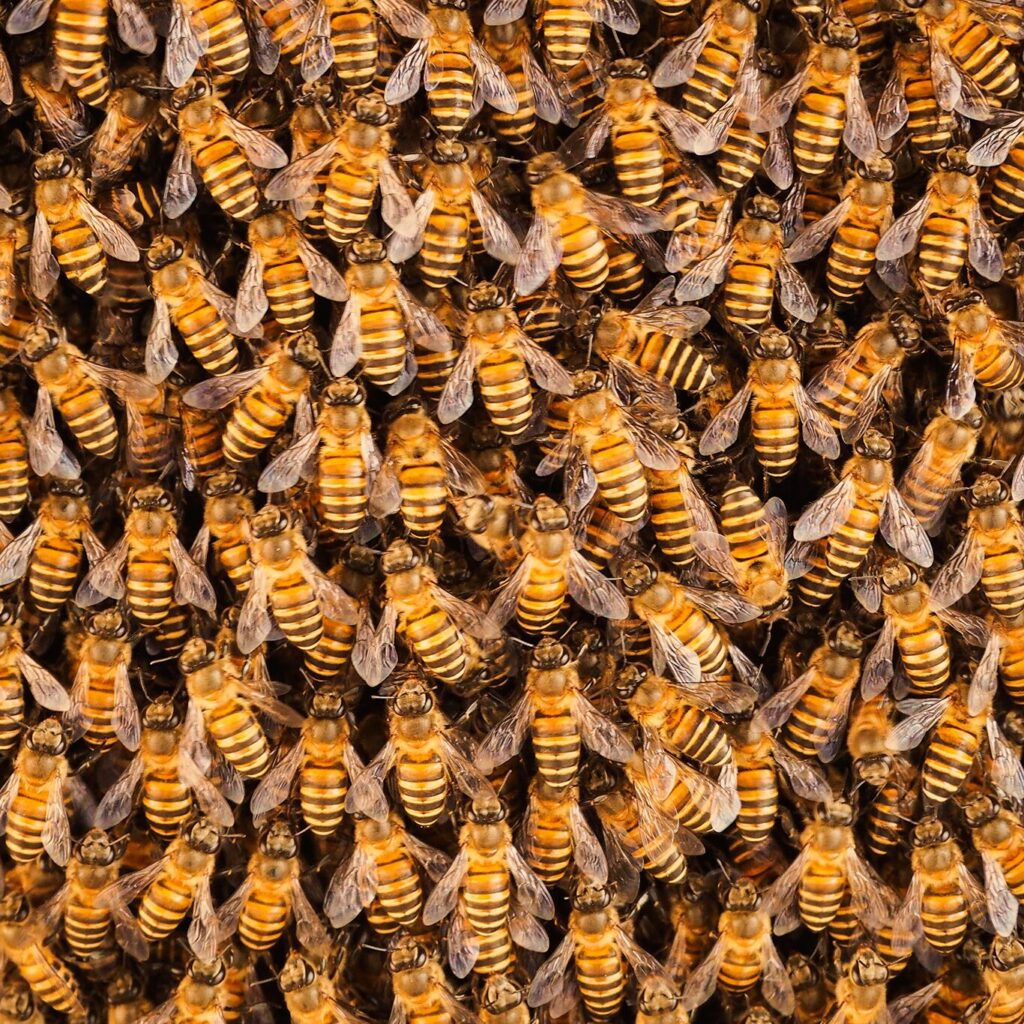
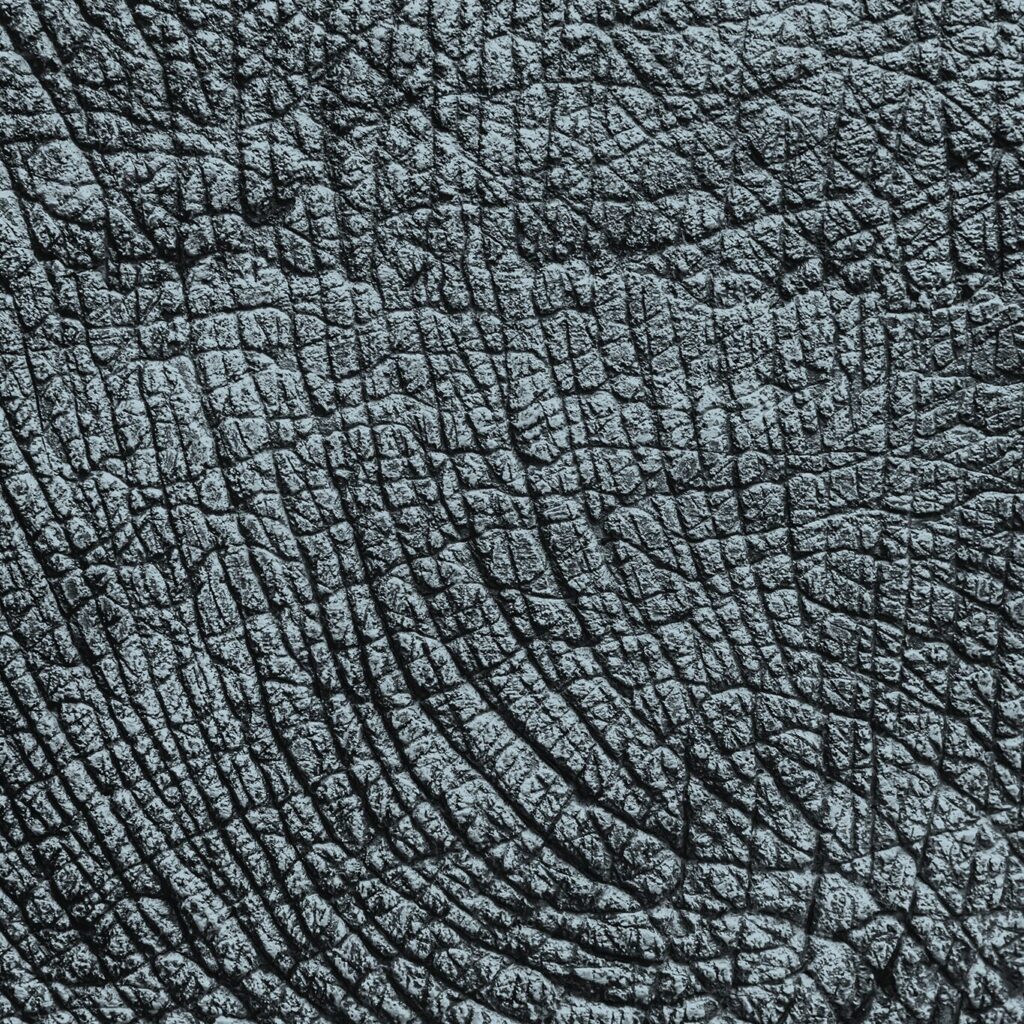
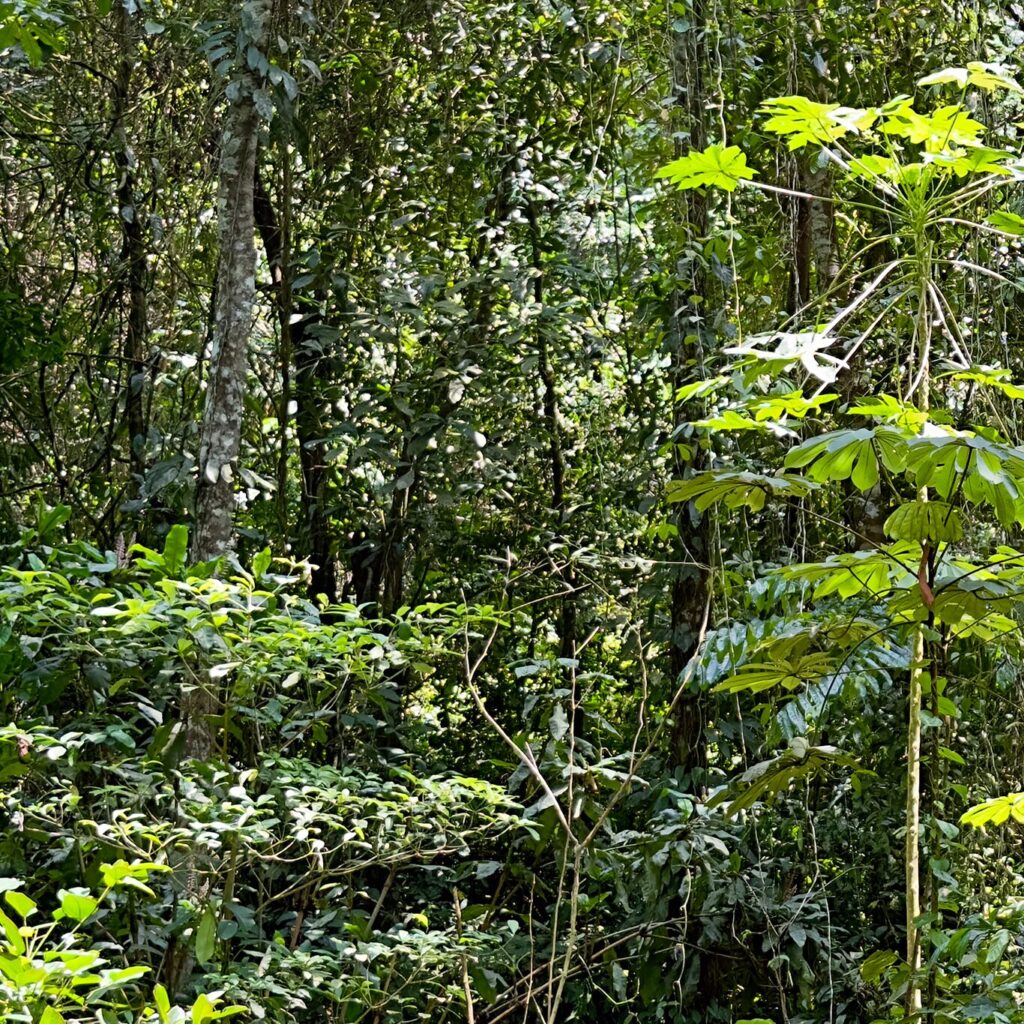
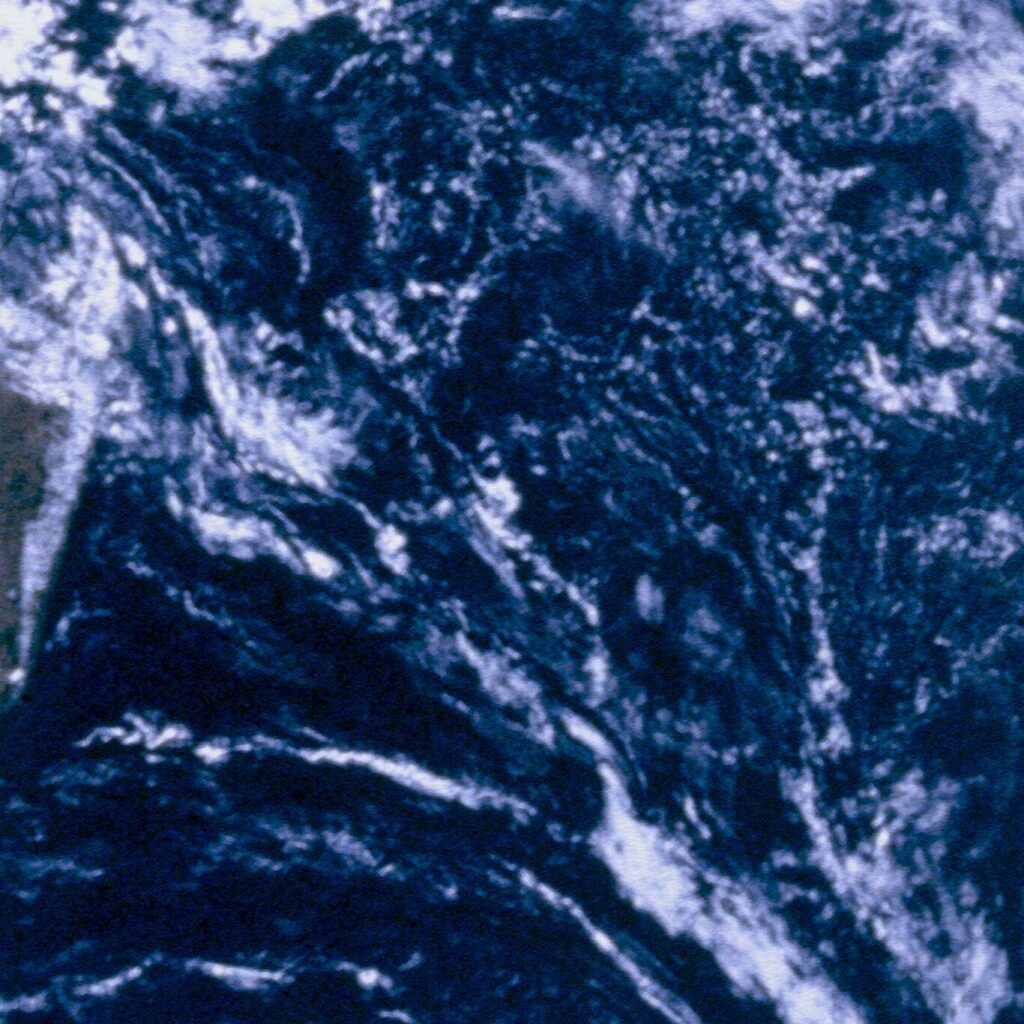
All conservation – no matter the scale – plays its role in creation care. Great or tiny, every living thing matters to the Lord. From learning about the little mushrooms of the Czech Republic to restoring and protecting West Bugwe forest in Uganda, from influencing the global church to nursing birds with broken wings, A Rocha is involved in projects of all sizes, minuscule, small, large, vast and global.
We envision a future where all life on Earth – from the tiniest insect to the largest mammal – is valued, protected, and sustained for generations to come.
- Minuscule
- Small
- Large
- Vast
- Global

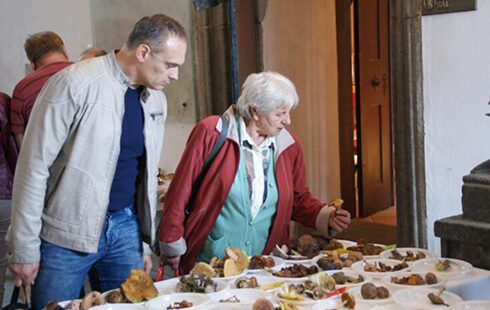
Czechs love mushrooms! Many have foraged in the forest from July to October since childhood with loved ones, picking their favorites from which to prepare delicious meals. Therefore, it is important they know what they can and cannot pick and eat out of over 120 species available. Through exhibitions organized by A Rocha Czech Republic, experts teach school children and members of the public how to identify the edibility, toxicity or possible mistakes in identification of the mushrooms. Their studies are also showing the impact of climate change on different mushroom varieties.
Mushroom exhibition in Czech Republic
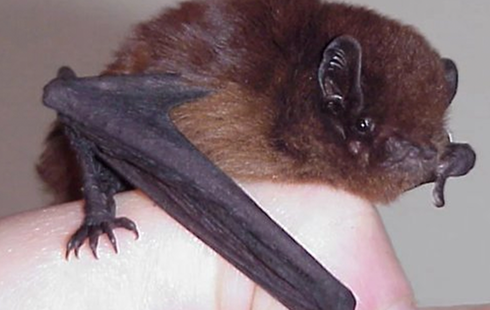
The long-tailed bat (Chalinolobus tuberculatus) is one of only two native terrestrial mammals still living in New Zealand today. They are highly endangered, classed one level below extinct and vulnerable to predation by introduced pests. Being nocturnal, bats are sensitive to artificial light and love to eat midges and mosquitoes. A Rocha Aotearoa New Zealand conduct regional surveys through the Karioi Project to follow their movement and urge communities living close by to get involved in pest control in their own backyard and maintain existing large trees and habitats that bats love roosting in.
Long-tailed bat monitoring in Aotearoa NZ
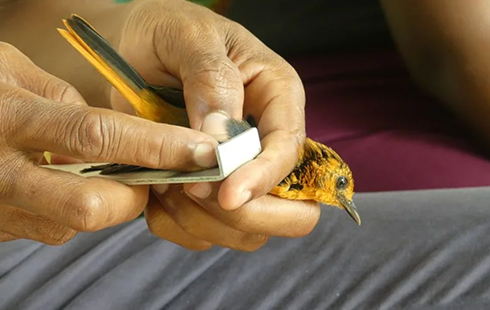
Every Thursday morning before sunrise, the team at A Rocha Kenya study birds caught in mist nets at the Mwamba field study centre. The captured birds are put in bird bags and then taken to the ringing station. After identifying the species, the bird is given a numbered metal ring. The bird is then aged and important biometrics taken before it is gently released. When a bird is ringed in a place, over time, one can estimate if the population is rising or falling. It also helps to understand the bird’s distribution where a particular species of bird is found in a certain place. In 2021, the team caught a Marsh warbler with a ring from Bulgaria!
Bird ringing in Kenya every Thursday

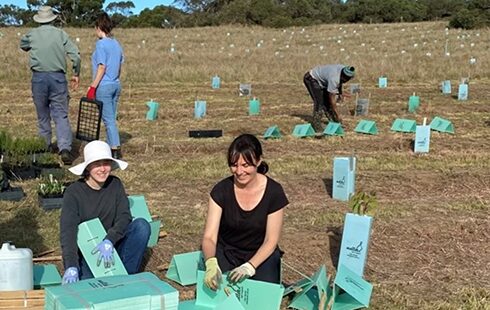
The Ngarrindjeri people have a timeless connection with Mount Sandy in South Australia. In partnership with A Rocha Australia and Cassinia Environmental, the community is improving the extent and condition of Coastal Mallee and Swamp Paperbark vegetation. In 2022, A Rocha Australia started to help by revegetating cleared farmland. Locally indigenous plants have been propagated in the nurseries and planted. This partnership not only aids in protecting the landscape but also reinforces the cultural connections of the Ngarrindjeri people to their land. It serves as a model for future projects, emphasising the vital role of indigenous partnerships in achieving successful conservation outcomes.
Mount Sandy Project in Australia

The European Storm-petrel (Hydrobates pelagicus) is the smallest and most mysterious of Europe’s ocean-going birds. It spends its life out at sea, only coming to land to breed. Petrels are known to migrate across massive distances. Every year, since 1990, A Rocha Portugal team members camp for the night on a cliff, on the Algarve coast, to study the birds. Researchers from Cardiff University are using the data collected to study how climate change may affect the survival of the species in relation to the surface temperature of the sea water and the availability of food.
European Storm-petrel research in Portugal with Cardiff University
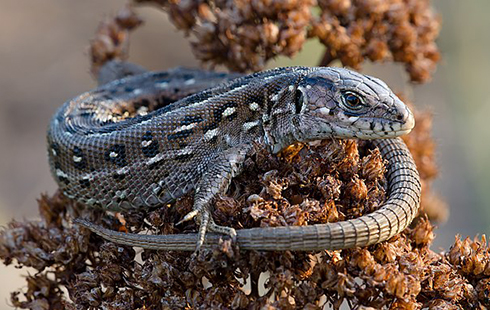
A Rocha’s newest national organization, A Rocha Sweden, is beginning a project to protect the Sand Lizard Lacerta agilis and its habitat in Småland. One of Sweden’s largest and most endangered lizards, populations of Sand Lizards in Sweden have reduced significantly, and it is today considered nationally threatened. One of the main threats has been a decline in its habitat – open sand areas with low vegetation – due to regrowth, tree planting and land exploitation.
That’s why A Rocha Sweden is working with the Nature Conservation Association in the municipality of Vaggeryd, with support from the municipal office and the County Board in Jönköping County, to protect and restore these valuable habitats. Stablilizing the sand dunes and creating sand piles for laying eggs will help to increase the survival rate of Sand Lizards while at the same time benefiting other species that thrive in a similar environment.
Sand lizard project in Sweden

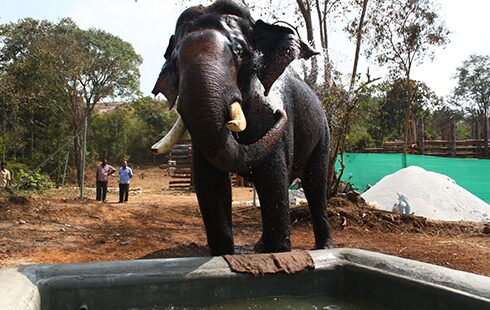
Bannerghatta National Park is a long but narrow fragment of the expansive Mysore elephant range that is home to the largest congregations of Asian Elephants (Elephas maximus) in the world -around 160 of them. Bannerghatta is perhaps the only elephant inhabited national park in India that lies this close to an urban metropolis. Within just a few kilometres, elephants that move outside the protected area find themselves deep in human settlements. Caught between a shrinking forest habitat and an ever-expanding urban population, elephants are forced to live in thin forest strips. Living on the edge they are often tempted out into human spaces. Since 2004, A Rocha India has been working in partnership with the Karnataka and Tamil Nadu Forest Departments, Asian Nature Conservation Foundation and the Indian Institute of Science and many others to carry out population studies, education and awareness programs, which have gained widespread participation. Elephants are tracked and surrounded to prevent them moving further. Routes are meticulously planned to drive elephants back to the forest as quickly and as safely as possible, trying to avoid major traffic routes and dense areas of inhabitation. In 2021, A Rocha India developed an early warning detection device to alert motorists of elephant movement on public thoroughfares and installed ‘smart’ laser fences.
Human-elephant conflict management in India “Human-elephant conflict management in India
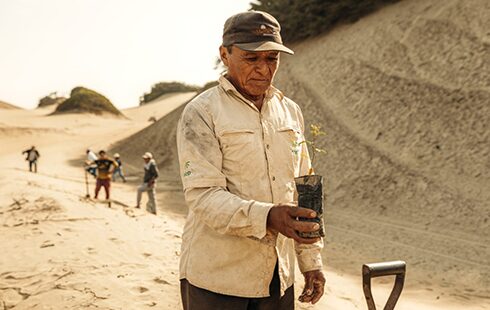
The La Libertad Dry Forest project focuses on conserving a critically endangered dry forest ecosystem, home to species like the Peruvian plant-cutter (Phytotoma raimondii) and the white-winged guan (Penelope albipennis). A Rocha Peru works with the local communities to restore degraded dry forest landscapes and increases native tree cover on agricultural lands to improve ecosystem health and reduce threats to vulnerable species. They train local conservation working groups on how to address practices that negatively affect the dry forests, helping to promote forest management and conducting regular forest patrols. The project also installs improved cookstoves in community households with higher firewood consumption. Additionally, it provides training to farmers on sustainable land management, improving crop yields while protecting biodiversity. The initiative also works with schools to raise environmental awareness, fostering future generations of conservationists.
The La Libertad Dry Forest project in Peru
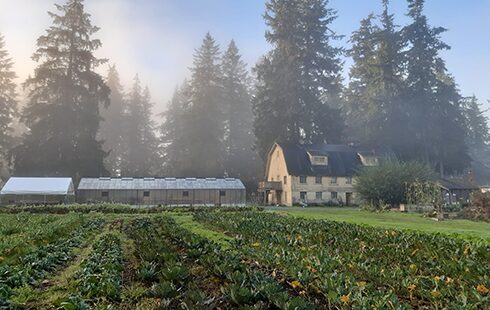
A Rocha Canada began its foray into farming over 18 years ago through Community Shared Agriculture (CSA). What began as a 10-member CSA now serves over 175 households with weekly produce June to October and even more through farmer’s markets. They also run a Farm to Families program to share fresh food with others. The project has supported schoolyard gardens, vegetable deliveries for home-bound seniors, and weekly produce to newcomer families. From hosting day camps for kids to traveling cooking demonstrations, they offer farm education to local communities. Funds from sold produce goes towards educating future farmers, supplying free weekly veggies to local newcomers, seniors with low food access, and other community partners. Surplus produce is also distributed to food banks. Last year, they gave over 5,000 pounds of vegetables.
Community Shared Agriculture in Canada

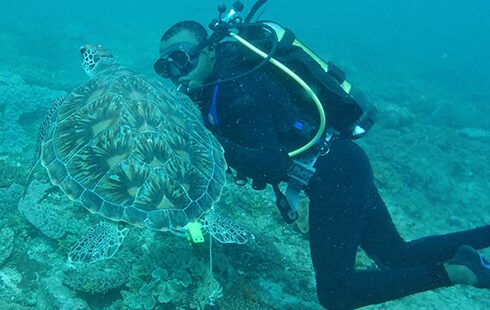
The Marine Conservation programme focuses on protecting marine ecosystems and promoting sustainable practices to safeguard biodiversity. With a particular emphasis on the conservation of critical coastal and marine habitats, the program works in partnership with local communities, scientists, and conservation organizations to address issues such as overfishing, habitat degradation, and pollution.
In Kenya, A Rocha’s work centers around the Watamu Marine National Park, one of the most biodiverse coastal areas in the Indian Ocean. They monitor shark, ray and guitarfish populations. They also monitor and describe the abundance of the rockpool coral (Anomastraea irregularis), the abundance and distribution of microplastics, threats and status of seagrass ecology.
In the USA, A Rocha focuses on coastal habitats in the Indian River Lagoon with a research focus on mole crabs (Emerita talpoida), pipefish (Syngnathidae) and horseshoe crabs (Limulus polyphemus). In addition, they study plastic pollution on the Atlantic coast.
Marine conservation programme
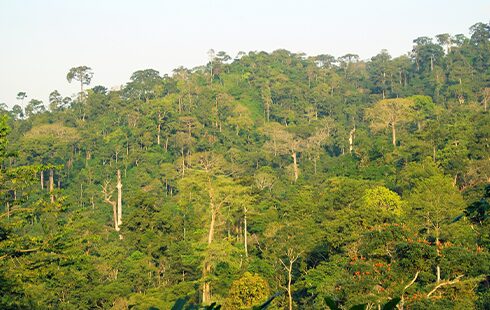
A Rocha’s African Forest Programme works to conserve and restore Africa’s vital forest ecosystems, which are critical for biodiversity, climate regulation, and local communities. The forests include Atewa forest in Ghana, West Bugwe forest in Uganda, Ferncliffe forest in South Africa and Dakatcha Woodland in Kenya. Communities rely on these forests as their source of sustenance and livelihood while many species such as the Endangered White-naped Mangabey (Cercocebus lunulatus), a rare and critically endangered monkey species call them home. They face threats such as degradation by encroachment, mining and illegal activities such as charcoal burning, farming and fuel wood collection.
African Forest Programme
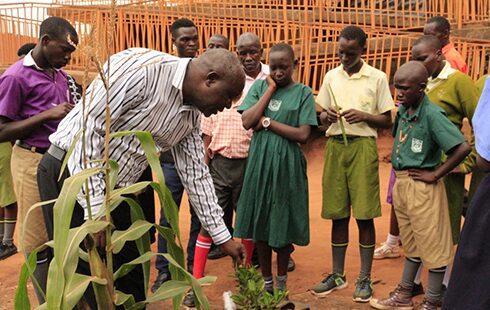
Every A Rocha National Organization has an environmental education programme for their local communities to learn how best to care for God’s creation. The program focuses on raising awareness of issues like biodiversity loss and climate change, while encouraging practical conservation actions such as tree planting and sustainable agriculture. The program includes school initiatives, community outreach, and workshops for local leaders, providing hands-on learning experiences at A Rocha centres. Educational resources, such as conservation action plans and guides, help integrate environmental care into everyday life. By fostering a deeper connection to nature, the program aims to inspire a global movement of people committed to protecting creation and promoting sustainable practices.

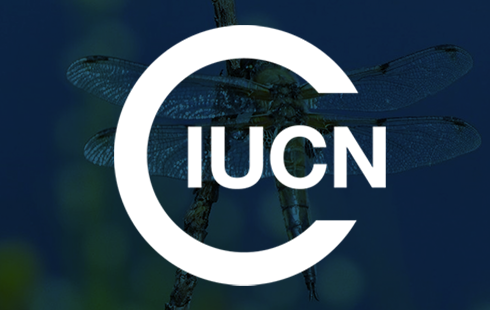
A Rocha has been a member of the International Union for Conservation of Nature (IUCN) since 2002. IUCN is the world’s largest and most diverse environmental network, serving as a global authority on biodiversity and conservation. Its World Conservation Congress, held every four years, brings together thousands of leaders from government, civil society, business, indigenous peoples, and academia to address global environmental challenges. A Rocha plays a unique role through its senior team members who participate in the Congress. This allows us to showcase our conservation work, share new findings, learn from experts, network, and explore partnerships. It also offers a valuable platform for engaging with Christians in other conservation agencies, strengthening our collective efforts to care for creation.
IUCN World Congress
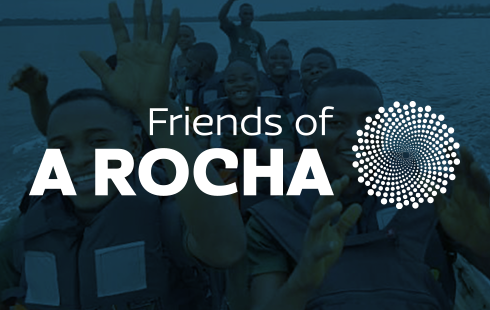
The Friends of A Rocha Network steadily grows as like-minded groups and organizations join with A Rocha in our mission to conserve and protect the natural world. Our current 30 members come from Africa, Latin America, and worldwide, and carry out work as diverse as environmental education, species discovery, tree planting, nature walks, conservation agriculture, carbon reduction, fighting environmental crime, and habitat restoration.Membership provides access to A Rocha’s resource materials and training sessions, opportunities for involvement in specific conservation projects, and connections to other conservation actors, as relevant. Through their support, Friends of A Rocha help to expand the reach and impact of A Rocha’s work around the world. This network fosters a strong sense of community and shared purpose in caring for creation, aligning with A Rocha’s Christian values of environmental responsibility and action.
Friends of A Rocha Network

Eco Church was launched as an A Rocha UK initiative in 2016, in collaboration with other partners, offering an environmental award scheme for churches in England and Wales. Since then, it has expanded globally, with various A Rocha national organizations and their partners engaging churches in creation care.
In the UK, the goal of Eco Church is to establish a widespread network of churches across England and Wales, positioning them as local hubs for environmental stewardship and beacons of hope for a sustainable future. Over 8,000 churches have already registered.
In Aotearoa New Zealand, A Rocha has begun welcoming churches into the Eco Church NZ network. In France, the Église Verte initiative was launched in 2017 in Paris, bringing together Roman Catholic, Orthodox, Protestant, and Evangelical churches to work together on environmental care. This joint national effort reflects the growing global reach and impact of Eco Church in encouraging churches to lead in creation care.
Eco Church
Click heading below to read more
- Minuscule
- Small
- Large
- Vast
- Global


Czechs love mushrooms! Many have foraged in the forest from July to October since childhood with loved ones, picking their favorites from which to prepare delicious meals. Therefore, it is important they know what they can and cannot pick and eat out of over 120 species available. Through exhibitions organized by A Rocha Czech Republic, experts teach how to identify the edibility, toxicity or possible mistakes in identification of the mushrooms.
Mushroom exhibition in Czech Republic

The long-tailed bat (Chalinolobus tuberculatus) is one of only two native terrestrial mammals still living in New Zealand today. They are highly endangered, classed one level below extinct and vulnerable to predation by introduced pests. Being nocturnal, bats are sensitive to artificial light and love to eat midges and mosquitoes. A Rocha Aotearoa New Zealand conduct regional surveys through the Karioi Project to follow their movement and progress and urge communities living close by to limit light pollution and maintain large existing trees as the bats love roosting in them.
Long-tailed bat monitoring in Aotearoa NZ

Every Thursday morning before sunrise, the team at A Rocha Kenya study birds caught in mist nets at the Mwamba field study centre. The captured birds are put in bird bags and then taken to the ringing station. After identifying the species, the bird is given a numbered metal ring. The bird is then aged and important biometrics taken before it is gently released. When a bird is ringed in a place, over time, one can estimate if the population is rising or falling. It also helps to understand the bird’s distribution where a particular species of bird is found in a certain place. In 2021, the team caught a Marsh warbler with a ring from Bulgaria!
Bird ringing in Kenya every Thursday


The Ngarrindjeri people have a timeless connection with Mount Sandy in South Australia. In partnership with A Rocha Australia and Cassinia Environmental, the community is improving the extent and condition of Coastal Mallee and Swamp Paperbark vegetation. In 2022, A Rocha Australia started to help by revegetating cleared farmland. Locally indigenous plants have been propagated in the nurseries and planted. This partnership not only aids in protecting the landscape but also reinforces the cultural connections of the Ngarrindjeri people to their land. It serves as a model for future projects, emphasising the vital role of indigenous partnerships in achieving successful conservation outcomes.
Mount Sandy Project in Australia

The European Storm-petrel (Hydrobates pelagicus) is the smallest and most mysterious of Europe’s ocean-going birds. It spends its life out at sea, only coming to land to breed. Petrels are known to migrate across massive distances. Every year, since 1990, A Rocha Portugal team members camp for the night on a cliff, on the Algarve coast, to study the birds. Researchers from Cardiff University are using the data collected to study how climate change may affect the survival of the species in relation to the surface temperature of the sea water and the availability of food.
European Storm-petrel research in Portugal with Cardiff University

A Rocha’s newest national organization, A Rocha Sweden, is beginning a project to protect the Sand Lizard Lacerta agilis and its habitat in Småland. One of Sweden’s largest and most endangered lizards, populations of Sand Lizards in Sweden have reduced significantly, and it is today considered nationally threatened. One of the main threats has been a decline in its habitat – open sand areas with low vegetation – due to regrowth, tree planting and land exploitation.
That’s why A Rocha Sweden is working with the Nature Conservation Association in the municipality of Vaggeryd, with support from the municipal office and the County Board in Jönköping County, to protect and restore these valuable habitats. Stablilizing the sand dunes and creating sand piles for laying eggs will help to increase the survival rate of Sand Lizards while at the same time benefiting other species that thrive in a similar environment.
Sand lizard project in Sweden


Bannerghatta National Park is a long but narrow fragment of the expansive Mysore elephant range that is home to the largest congregations of Asian Elephants (Elephas maximus) in the world -around 160 of them. Bannerghatta is perhaps the only elephant inhabited national park in India that lies this close to an urban metropolis. Within just a few kilometres, elephants that move outside the protected area find themselves deep in human settlements. Caught between a shrinking forest habitat and an ever expanding urban population, elephants are forced to live in thin forest strips. Living on the edge they are often tempted out into human spaces. Since 2004, A Rocha India has been working in partnership with the Karnataka Forest Department, Asian Nature and the India Institute of Science to carry out population studies, education and awareness, which have gained widespread participation. Elephants are tracked and surrounded to prevent them moving further. Routes are meticulously planned to drive elephants back to the forest as quickly and as safely as possible, trying to avoid major traffic routes and dense areas of inhabitation. In 2021, A Rocha India developed an early warning detection device to alert motorists of elephant movement on public thoroughfares and installed ‘smart’ laser fences.
Human-elephant conflict management in India

The La Libertad Dry Forest project focuses on conserving a critically endangered dry forest ecosystem, home to species like the Peruvian plant-cutter (Phytotoma raimondii) and the white-winged guan (Penelope albipennis). A Rocha Peru works with the local communities to restore degraded dry forest landscapes and increases native tree cover on agricultural lands to improve ecosystem health and reduce threats to vulnerable species. They train local conservation working groups on how to address practices that negatively affect the dry forests, helping to promote forest management and ecotourism plans, and conducting regular forest patrols. The project also installs ecological cookstoves in community households with higher firewood consumption. Additionally, it provides training to farmers on sustainable land management, improving crop yields while protecting biodiversity. The initiative also works with schools to raise environmental awareness, fostering future generations of conservationists.
The La Libertad Dry Forest project in Peru

A Rocha Canada began its foray into farming over ten years ago through Community Shared Agriculture (CSA). What began as a 10-member CSA now serves over 175 households with weekly produce June to October and even more through farmer’s markets. They also run a Farm to Families program to share fresh food with others. The project has supported schoolyard gardens, vegetable deliveries for home-bound seniors, and weekly produce to newcomer families. From hosting day camps for kids to traveling cooking demonstrations, they offer farm education to local communities. Funds from sold produce goes to supplying free weekly veggies to local newcomers, seniors with low food access, and other community partners. Surplus produce is also distributed to food banks. Last year, they gave over 5,000 pounds of vegetables.
Community Shared Agriculture in Canada


The Marine Conservation programme focuses on protecting marine ecosystems and promoting sustainable practices to safeguard biodiversity. With a particular emphasis on the conservation of critical coastal and marine habitats, the program works in partnership with local communities, scientists, and conservation organizations to address issues such as overfishing, habitat degradation, and pollution.
In Kenya, A Rocha’s work centers around the Watamu Marine National Park, one of the most biodiverse coastal areas in the Indian Ocean. They monitor shark, ray and guitarfish populations. They also monitor and describe the abundance of the rockpool coral (Anomastraea irregularis), the abundance and distribution of microplastics, threats and status of seagrass ecology.
In the USA, A Rocha focuses on coastal habitats in the Indian River Lagoon with a research focus on mole crabs (Emerita talpoida), pipefish (Syngnathidae) and horseshoe crabs (Limulus polyphemus). In addition, they study plastic pollution on the Atlantic coast.
Marine conservation programme

A Rocha’s African Forest Programme works to conserve and restore Africa’s vital forest ecosystems, which are critical for biodiversity, climate regulation, and local communities. The forests include Atewa forest in Ghana, West Bugwe forest in Uganda, Ferncliffe forest in South Africa and Dakatcha Woodland in Kenya. Communities rely on these forests as their source of sustenance and livelihood while many species such as the Endangered White-naped Mangabey (Cercocebus lunulatus), a rare and critically endangered monkey species call them home. They face threats such as degradation by encroachment, mining and illegal activities such as charcoal burning, farming and fuel wood collection.
African Forest Programme

Every A Rocha National Organization has an environmental education programme for their local communities to learn how best to care for God’s creation. The program focuses on raising awareness of issues like biodiversity loss and climate change, while encouraging practical conservation actions such as tree planting and sustainable agriculture. The program includes school initiatives, community outreach, and workshops for local leaders, providing hands-on learning experiences at A Rocha centres. Educational resources, such as conservation action plans and guides, help integrate environmental care into everyday life. By fostering a deeper connection to nature, the program aims to inspire a global movement of people committed to protecting creation and promoting sustainable practices.
Environmental Education in ARWF


A Rocha has been a member of the International Union for Conservation of Nature (IUCN) since 2002. IUCN is the world’s largest and most diverse environmental network, serving as a global authority on biodiversity and conservation. Its World Conservation Congress, held every four years, brings together thousands of leaders from government, civil society, business, indigenous peoples, and academia to address global environmental challenges. A Rocha plays a unique role through its senior team members who participate in the Congress. This allows us to showcase our conservation work, share new findings, learn from experts, network, and explore partnerships. It also offers a valuable platform for engaging with Christians in other conservation agencies, strengthening our collective efforts to care for creation.
IUCN World Congress

The Friends of A Rocha Network steadily grows as like-minded groups and organizations join with A Rocha in our mission to conserve and protect the natural world. Our current 30 members come from Africa, Latin America, and worldwide, and carry out work as diverse as environmental education, species discovery, tree planting, nature walks, conservation agriculture, carbon reduction, fighting environmental crime, and habitat restoration.Membership provides access to A Rocha’s resource materials and training sessions, opportunities for involvement in specific conservation projects, and connections to other conservation actors, as relevant. Through their support, Friends of A Rocha help to expand the reach and impact of A Rocha’s work around the world. This network fosters a strong sense of community and shared purpose in caring for creation, aligning with A Rocha’s Christian values of environmental responsibility and action.
Friends of A Rocha Network

Eco Church was launched as an A Rocha UK initiative in 2016, in collaboration with other partners, offering an environmental award scheme for churches in England and Wales. Since then, it has expanded globally, with various A Rocha national organizations and their partners engaging churches in creation care.
In the UK, the goal of Eco Church is to establish a widespread network of churches across England and Wales, positioning them as local hubs for environmental stewardship and beacons of hope for a sustainable future. Over 8,000 churches have already registered.
In Aotearoa New Zealand, A Rocha has begun welcoming churches into the Eco Church NZ network. In France, the Église Verte initiative was launched in 2017 in Paris, bringing together Roman Catholic, Orthodox, Protestant, and Evangelical churches to work together on environmental care. This joint national effort reflects the growing global reach and impact of Eco Church in encouraging churches to lead in creation care.
Eco Church
At the grassroots level, we focus on local conservation projects that involve communities directly in protecting their natural environment. Whether it is planting trees to restore habitats, protecting local wildlife, or monitoring endangered plant species, these small actions have a profound impact on local ecosystems. By involving local people in these efforts, we not only protect the environment but also foster a deeper connection between individuals and nature, helping them realize that their small contributions can have a global ripple effect.
As we scale our work from local to national and continental levels, we expand our conservation efforts through larger-scale projects that focus on habitat preservation and ecological restoration. Through our organizations in over 20 countries, we partner with national governments, local NGOs, and international institutions to ensure that efforts are sustained and that entire ecosystems like wetlands, forests, and marine environments are safeguarded for future generations. These efforts illustrate how even large, systemic change starts with the dedication of local communities and organizations, working together to protect life at every level.
From small donations to large-scale partnerships, each contribution helps ensure ecosystems continue to thrive, Your support, whatever the amount, makes a difference.
In 2025 our goal is to raise £100,000 from regular individual donors. Join us and give a gift for life on any scale.